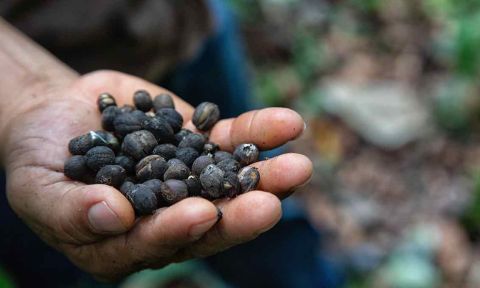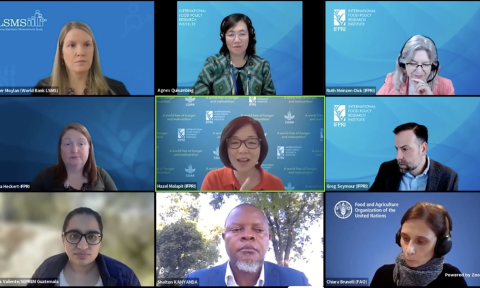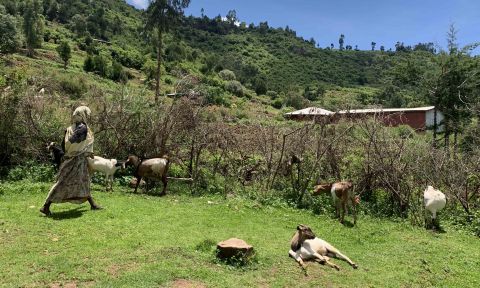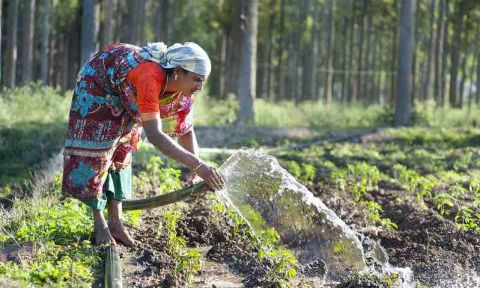Reducing poverty in low- and middle-income countries remains a preeminent challenge. Gains made in recent decades are now under threat from persistent crises, including health crises , conflict, and climate change as well as uncertain progress in transforming food systems. Renewing progress in addressing poverty, food insecurity, and low levels of nutrition, health, and education requires understanding the gender dimensions of development challenges and strategies in order to promote inclusion of women and girls and marginalized and excluded groups. To address these challenges, the Poverty, Gender, and Inclusion Unit, together with its partners, conducts research in three areas:
- Poverty and Social Protection: Poverty causes underinvestment in human and physical capital and undermines the fabric of communities. PGI conducts research, including rigorous impact evaluations, to inform effective designs of social protection programs and gender-responsive development and humanitarian interventions to address poverty, livelihoods, nutrition, health, and empowerment.
- Gender: Women play a critical and potentially transformative role in developing countries’ agricultural growth and in ensuring their families’ food and nutrition security, but they face persistent economic, social, and normative constraints. PGI uses a variety of research approaches to improve understanding of the role of gender, including relationships between women and men, in achieving food and nutrition security for current and future generations.
- Governance and Voice: Progress against poverty and malnutrition stalls unless women and marginalized groups can exercise voice and agency in the agrifood system. PGI research examines strategies to increase women’s voice in community and government decisions and to strengthen local institutions that are essential to development.
Predecessor IFPRI Division page is available at :

Daniel Gilligan
Director, Poverty, Gender, and Inclusion (PGI)

Akhter Ahmed
Senior Research Fellow / Country Representative, IFPRI Bangladesh
Harold Alderman
Senior Research Fellow
James Allen IV
Associate Research Fellow
Mehrab Bakhtiar
Research Fellow
Aulo Gelli
Senior Research Fellow
Jessica Heckert
Research Fellow
Melissa Hidrobo
Senior Research Fellow
Naureen Karachiwalla
Research Fellow
Katrina Kosec
Senior Research Fellow
Jordan Kyle
Research Fellow
Jessica Leight
Research Fellow
Hazel Malapit
Senior Research Coordinator
Agnes Quisumbing
Senior Research Fellow
Kalyani Raghunathan
Research Fellow
Shalini Roy
Senior Research Fellow

Lucy Billings
Program Manager
Julie Ghostlaw
Country Program Manager
Ara Go
Senior Program Manager
Jenny Smart
Senior Program Manager

Md. Al-Hasan
Research Analyst
Md. Masum Ali
Research Analyst
Sadat Anowar
Research AnalystLucia Carrillo
Research Analyst
John Hoddinott
Nonresident Fellow
Mir Raihanul Islam
Research Analyst
Parthu Kalva
Research Analyst
Md. Aminul Karim
Research Analyst
Md. Aminul Islam Khandaker
Senior Database Manager
Emily Myers
Senior Research Analyst
Odiche Nwabuikwu
Research Analyst
Giordano Palloni
Nonresident Fellow
Flor Paz
Research Analyst
Wahid Quabili
Senior Research Analyst
Deboleena Rakshit
Research Analyst
Md. Redoy
Field Research Officer
Raisa Shamma
Research Analyst
Heleene Tambet
Research Analyst
Sarim Zafar
Research Analyst
Project Ultra-Poor graduation in Somalia
Implementer Led Evaluation and Learning (IMPEL) evaluation of SPIR II RFSA Midline survey report
Food prices and the wages of the poor: A cost effective addition to high frequency food security monitoring
Assessing the impact of rice price stabilization policies in Bangladesh: Results from a stochastic spatial equilibrium model
Building pathways out of poverty in Baidoa, Somalia: Qualitative evidence around resilience in the context of flood shocks
Utilization of Integrated Child Development Services (ICDS) and its linkages with undernutrition in India
Who is absent and why? Factors affecting doctor absenteeism in Bangladesh
Aspiring to more? New evidence on the effect of light touch aspirations interventions in rural Ethiopia
Claim making under India’s Mahatma Gandhi National Rural Employment Guarantee Act (MGNREGA): Barriers and opportunities for women’s voice and agency over asset selection
A qualitative study exploring women’s empowerment in coffee cooperatives in Chiapas, Mexico
Building pathways out of poverty in Baidoa: A randomized controlled trial: Evidence from the midline survey
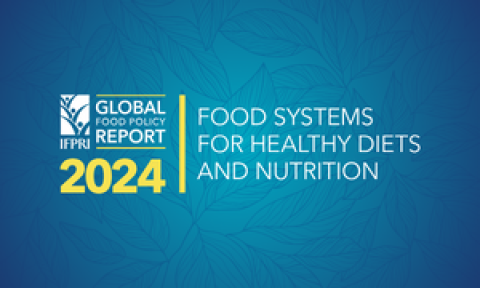 IFPRI Policy SeminarMay, 29 2024
IFPRI Policy SeminarMay, 29 20242024 Global Food Policy Report: Improving Diets and Nutrition through Food Systems: What Will it Take?
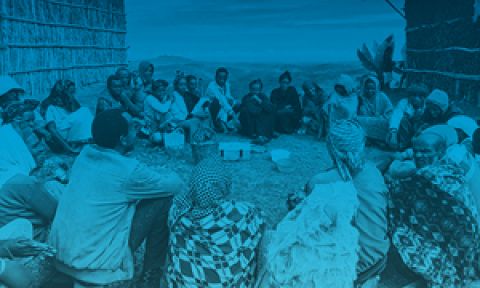 IFPRI Policy SeminarApr, 17 2024
IFPRI Policy SeminarApr, 17 2024Deepening Social Protection Systems: Enhancing livelihoods and health in Ethiopia
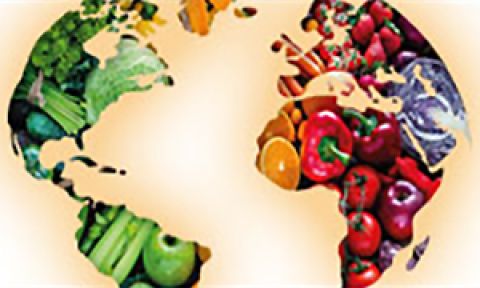 IFPRI at External EventApr, 9 - 12 2024
IFPRI at External EventApr, 9 - 12 20245th Global Food Security Conference
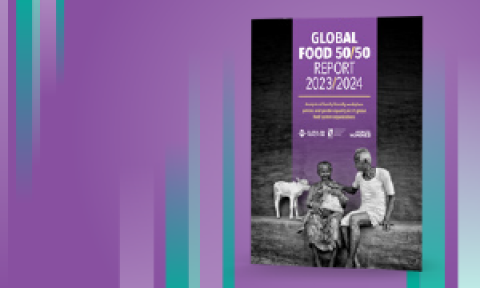 IFPRI Policy SeminarMar, 7 2024
IFPRI Policy SeminarMar, 7 2024Global Food 50/50 Launch Event
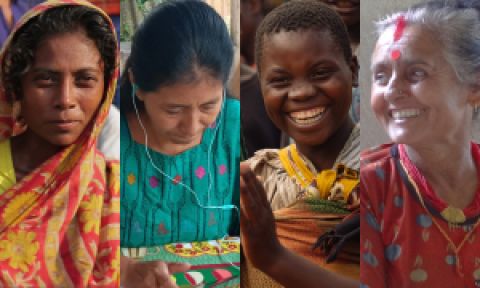 IFPRI Policy SeminarFeb, 22 2024
IFPRI Policy SeminarFeb, 22 2024Introducing the new Women’s Empowerment Metric for National Statistical Systems (WEMNS)
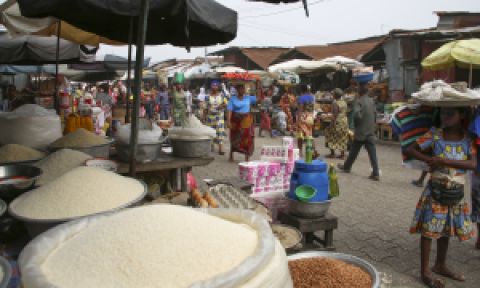 Series/Special EventFeb, 6 2024
Series/Special EventFeb, 6 2024From Commitments to Impact: Analyzing the Global Commitments Toward Promoting Food Security and Healthy Diets


